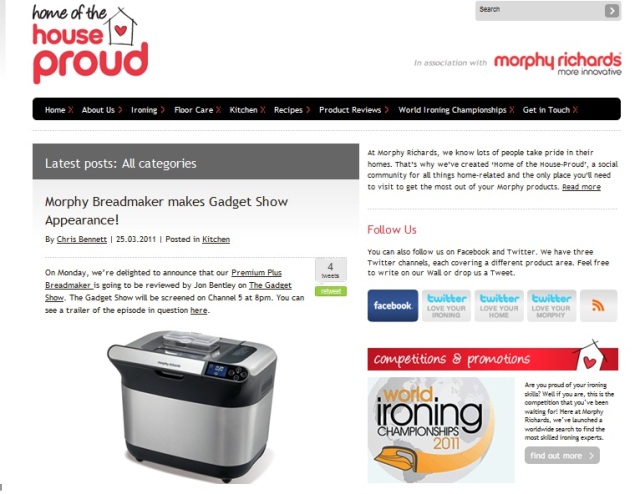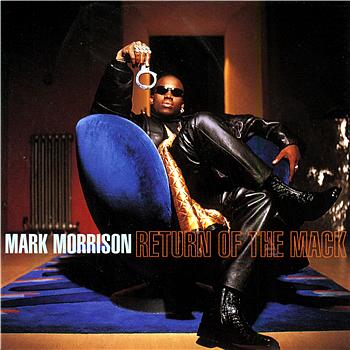I recently penned an article for The Drum Magazine in their Knowledge Bank section, which uses the collective knowledge of professionals to deliver key insights into running effective marketing campaigns. I’ve reproduced it below:
A recent report by Gartner, an IT analyst firm, predicts that as many as 70 per cent of social media campaigns will fail in 2011. Whether their predictions turn out to be accurate or not, I think it’s an exciting discussion point.
Why do so many brands make the brave foray into this unpredictable, uncontrollable but ultimately rewarding world, only to fall flat on their faces? Another report by eMarketer documented that social media spend is on the rise significantly. Brands are more willing than ever to invest, but businesses are spending money for all the wrong reasons.
My theory is that it’s a lack of strategic direction, rather than a dearth in quality creative ideas, that’s driving this alarming statistic.
Let’s address the root of the problem…
The last couple of years have seen huge advances in business to consumer interaction. The traditional campaign model has largely given way to the brand as a permanent touch point, a virtual location at which consumers can get their daily dose of news, offers, social interaction, and increasingly, entertainment.
While some brands are inherently more talkable than others, less likely candidates are reaping the rewards of a social presence in other ways; by giving their brand a personality, by streamlining their customer service or by recruiting brand ambassadors to do the talking for them.
Huge numbers of brands are vying for this competitive space. Much like traditional media, social media is becoming saturated with commercial messaging and, for consumers, the novelty factor is wearing off. Brand managers are recognising this and realising that they need a knock out idea to achieve cut through at all.
Herein lies the reason behind the rise of the social media fail. There is no shortage of creative, innovative ideas, but more often than not, they have no grounding in insight and strategy.
To paraphrase Martin Thomas, co-author of Crowdsurfing and a good friend of the business, there is no such thing as a social media strategy, only a communications strategy extended across the social web. I wholeheartedly agree, but there are a number of strategic steps you can take to make sure your ideas don’t end up in the social media junkyard.
What are you looking to achieve?
First, consider your objectives and prepare to evaluate your activity against these. Are you looking to raise awareness, improve your reputation, boost sales or increase consumer engagement with your brand?
Conduct a social media audit
Are conversations already happening about your brand? If not, then you need to create something for people to talk about. If they are, then where are they happening? If there are genuine complaints, think about how you can respond sensitively and more importantly how you can take action to appease them. If people are saying nice things, think about how you can harness this positivity and give them the power to spread the love for you.
Identify common themes
Analyse the existing conversations around your brand to identify central themes to base your content around. There may be real-life problems that you could help solve, or perhaps you could harness and maximise something consumers particularly like about your brand.
Consider your audience’s behaviour
Your audience’s behaviour will inform the mechanics of your campaign. Online consumers can be classified in terms of a number of overlapping behavioural profiles. Spectators, for instance, read blogs, reviews and forums posts without engaging in conversations; Joiners maintain social networking profiles and browse other people’s; and Content Creators publish blogs, build websites and produce their own videos.
Develop compelling content
The holy grail is creating an idea that will travel, either through developing branded content that people will read, watch, talk about and pass on to their peers, or through inspiring consumers to create that content for you.
After The Drum reported that we had picked up a social media brief from household appliance brand Morphy Richards last year, one reader posted the following comment: “Just boiled some water in the new Morphy Richard kettle. Really fast. LOL.”
Why would anyone want to talk about routine tasks online? You’d be surprised: I see it every day on Twitter; I hear it down the pub without even noticing it; everyday problems need everyday solutions.
Our execution was firmly grounded in the strategic insight we had gained through our research. After identifying disparate conversations about the brand and about household issues, we developed a strategy to unite them in one location. Within the brand’s target audience, we uncovered a number of niche tribes within specialist needs – such as allergy sufferers and coeliacs – and developed content around these areas to help make people’s lives easier and more enjoyable. Finally, we recruited high-profile influencers and encouraged them to do the talking for us by letting them in on the latest product releases, sparking large numbers of positive conversations across the web.
If brands are to flourish and grow in the social media environment, they need to grow up and think in terms of addressing real life, consumer issues rather than shoehorning ideas onto the latest technological trends. Let’s hope our industries heed this call and make 2011 the year that social media comes of age, rather than proving the naysayers correct.








